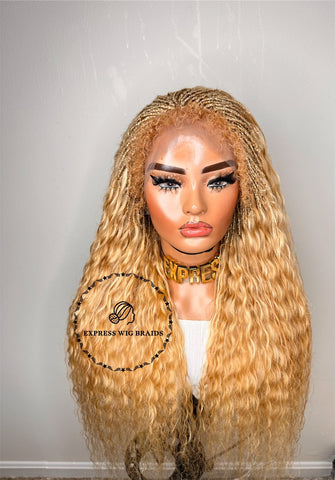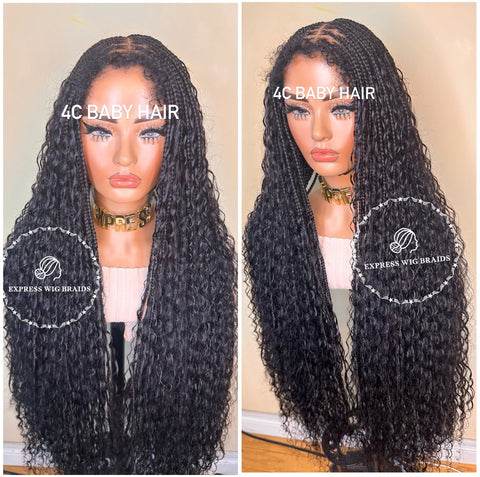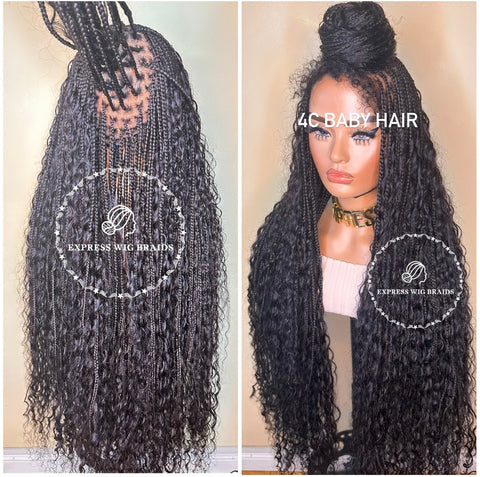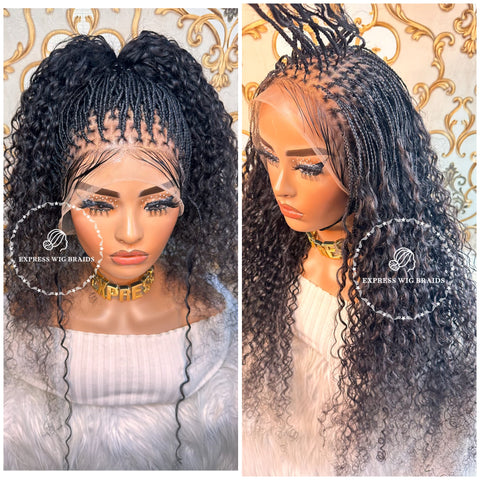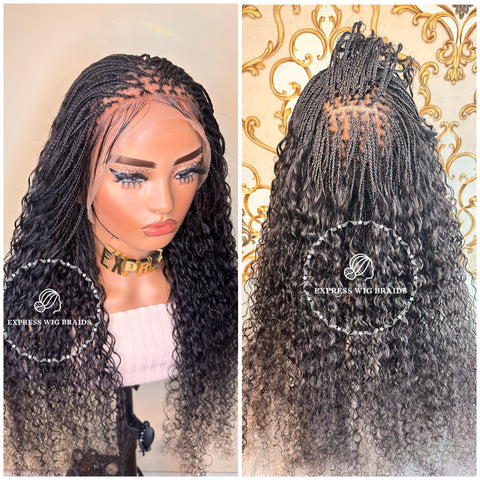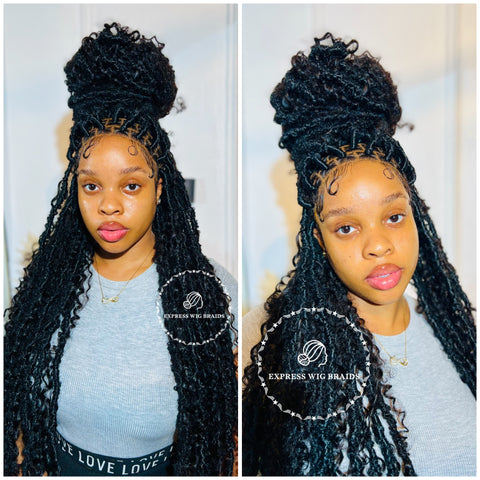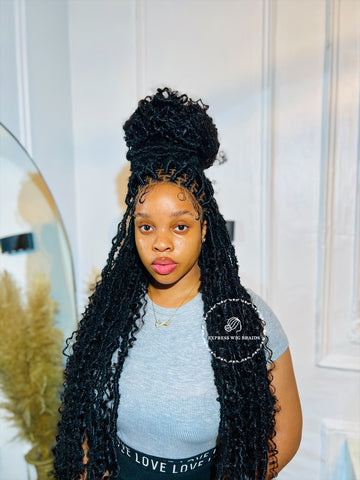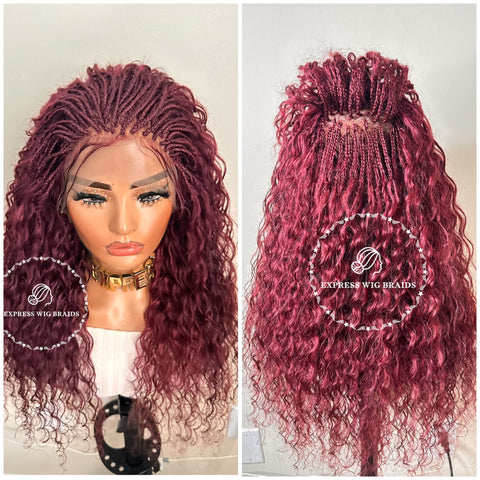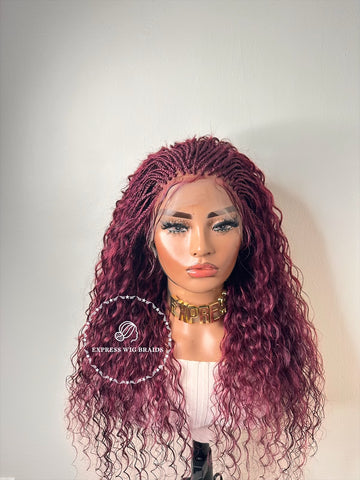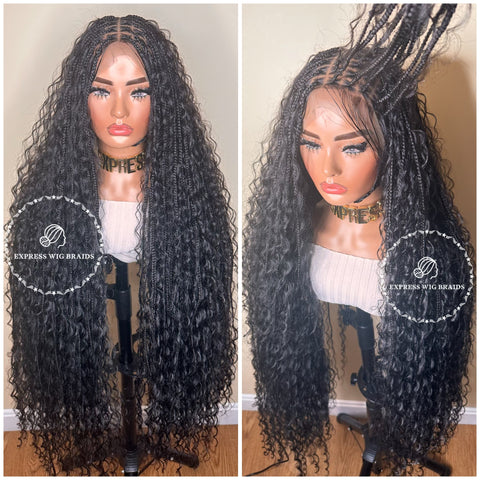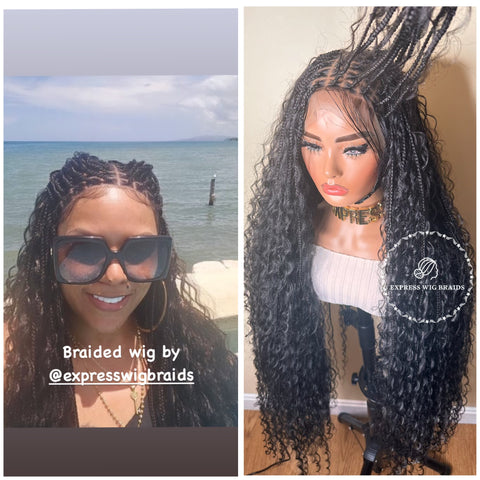How Often Should You Wash Your Hair? The Truth About Shampooing Frequently

We've all heard different conflicting advice when it comes to hair washing. While some recommend shampooing frequently, others suggest that it could be damaging to your hair and scalp. So, what’s the truth about hair shampooing?
In this article, we’ll uncover the facts about how often you should wash your hair based on recent research and hair experts.
We’ll also look at different factors that determine the ideal washing frequency and offer insights on the best hair care practices whether you're caring for your natural hair or maintaining a braided wig.
Understanding Hair Health and the Use of Shampoo
Before discussing how often you should wash your hair, it's important to understand the role shampoo plays in maintaining healthy hair. Shampoo's primary function is to cleanse the scalp and strands by removing dirt, oils, and product buildup.
While this cleansing is necessary, using shampoo too often can strip away your scalp's natural oils. Your scalp produces sebum, a natural oil that helps moisturize and protect your hair.
Frequent shampooing can disrupt this process, leading to imbalances. That's why it's essential to find a balance between keeping your hair clean and maintaining its natural moisture.
How Often Should I Wash My Natural Hair?
The reality is that there’s no one-size-fits-all answer to how often you should wash your hair. Factors such as your hair type, lifestyle, environment, and the products you use all influence the frequency of washing that’s right for you.
Here's a breakdown based on different hair types:
1. Curly or Coily Hair: Curly or coily hair tends to be drier than straight or wavy hair because the natural oils have difficulty traveling down the twists and bends of the hair shaft. Washing curly hair too often can result in increased dryness and frizz.
It’s generally recommended to wash curly hair every 7-10 days. For those with particularly dry or textured hair, extending the time between washes may be beneficial, with some opting to simply rinse with water and use conditioner in place of a full shampoo.
2. Wavy Hair: Wavy hair is often considered a middle ground between straight and curly textures. It can become oily more quickly, particularly at the roots, but is generally less susceptible to dryness. Wavy hair typically benefits from being washed more often than curly hair, though it still needs careful attention to maintain moisture balance.
A recommended washing frequency is every 3-5 days, which helps prevent excessive oil buildup while also protecting the hair's natural moisture.
3: Straight Hair: Straight hair tends to accumulate oil more quickly, especially at the roots, as the oil moves more easily down the hair shaft. Because of this, people with straight hair may need to wash their hair more often than those with other textures.
Washing every 2-3 days is usually recommended to prevent excess oil buildup and keep the hair looking fresh and clean.
When choosing hair care products, be mindful of their ingredients. Shampooing too often can irritate the scalp, so it's best to use sulfate-free, gentle shampoos to maintain your scalp's natural balance intact.
How Often Should I Wash My Braided Wig?
Synthetic and human hair braid wigs require different care. Here's how often you should wash each of them:
1. Synthetic Braids Wigs: Synthetic hair fibers are often treated with coatings that give them their shine, and frequent washing can strip these coatings, leaving your wig looking dull.
The recommended washing frequency should be once every 8-10 wears or as needed depending on buildup. Spot cleaning with a dry shampoo or wig refresher is often enough to keep synthetic wigs looking fresh.
2. Human Hair Wigs: Human hair braids wig can typically withstand washing more often than synthetic wigs. The recommended washing frequency should be every 10-14 days depending on how often you wear it. If you wear the wig daily, washing every 7-10 days is optimal.
When washing your human hair braids wig, always use a sulfate-free shampoo to avoid drying out the hair. Follow up with a conditioner designed for wigs to keep the hair smooth and moisturized.
What is the Effect of Shampooing Too Frequently?
While shampooing is important for cleanliness, it’s possible to overdo it. Frequent shampooing can lead to scalp irritation leading to sensitivity, itching, or flakiness.
The scalp’s natural oils are meant to protect it from environmental factors, and over-shampooing disrupts this protective barrier.
Also, washing your hair too often can strip away the natural oils that protect and moisturize your scalp and hair. This leads to dryness, which can make your hair more prone to breakage and split ends.
What are the Dangers of Not Washing Hair Enough?
On the other hand, skipping washes entirely can lead to its own set of negative effects on your hair and scalp.
Not washing your hair frequently enough can result in the accumulation of product residue, oils, dirt, and sweat. This buildup can lead to clogged pores, which may contribute to scalp issues such as dandruff, inflammation, and even hair loss.
Also, a build-up of oil, sweat, and dirt can result in unpleasant odors. This is especially true for those who wear wigs for extended periods without cleaning them.
Tips for Maintaining Healthy Natural Hair and Braids Wigs
To keep your hair and wigs looking their best, follow these tips for proper maintenance and washing:
-
Sulfate-free shampoos and conditioners are gentler and help preserve moisture
-
When it comes to braided wigs or extensions, look for wig-specific shampoos and conditioners to avoid damaging delicate fibers
-
Be sure to protect your natural hair at night by wearing a satin or silk scarf or using a satin pillowcase. This helps minimize breakage and friction while you sleep
-
Similarly, protect your braided wig by storing it in a breathable bag and avoiding pulling on the strands
-
Dry shampoo is for both natural hair and wigs between washes. It helps absorb excess oil and refreshes your scalp and hair without requiring a full wash. Use in moderation to avoid buildup.
Conclusion
While there are general guidelines, it’s essential to pay attention to your hair’s unique needs and adjust your washing schedule accordingly.
By following a well-balanced hair care routine, and using quality organic hair care products from Express Wig Braids, you can maintain healthy, shiny hair whether it’s your natural hair or braids wig.
